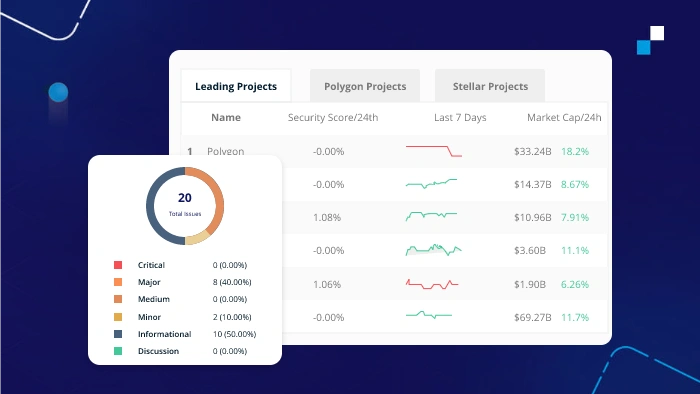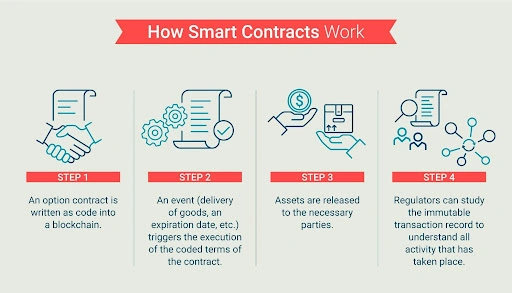Smart Contract Audits for Beginners: Why They’re Essential for Blockchain Security
Summary
Introduction: Smart Contract Audits for Beginners
In the rapidly evolving world of blockchain technology, smart contract audits for beginners are a fundamental aspect of ensuring the security and reliability of decentralized applications (dApps). Smart contracts, self-executing contracts with the terms of the agreement directly written into code, are pivotal in automating processes in various sectors, including finance, supply chain, and healthcare. However, due to their immutable nature, any vulnerability in the code can lead to significant financial losses and undermine trust in the system.MediumPyth Network
Conducting thorough audits helps identify and mitigate potential risks, ensuring that smart contracts perform as intended without exposing users to security breaches. This article delves into the importance of smart contract audits, common vulnerabilities, and the audit process, providing a comprehensive guide for beginners.
Understanding Smart Contract Audits

Credit from LeewayHertz
What is a Smart Contract Audit?
A smart contract audit is a comprehensive review of a smart contract’s code to identify security vulnerabilities, logical errors, and inefficiencies. The audit process involves both automated tools and manual inspection by experienced auditors to ensure the contract’s functionality and security before deployment.
Why Are Smart Contract Audits Important?
Smart contracts operate in a decentralized environment where transactions are irreversible. Once deployed, any flaws in the contract cannot be easily rectified, making pre-deployment audits crucial. Audits help in:
- Identifying Vulnerabilities: Detecting potential weaknesses that could be exploited by malicious actors.
- Ensuring Compliance: Verifying that the contract adheres to legal and regulatory standards.
- Enhancing Trust: Building confidence among users and investors by demonstrating a commitment to security.
Common Smart Contract Vulnerabilities
Understanding common vulnerabilities is essential for both developers and auditors. Some prevalent issues include:
- Reentrancy Attacks: Occurs when a contract calls another contract, allowing the second contract to make recursive calls back into the first contract before the initial execution is complete.
- Integer Overflow and Underflow: When calculations exceed the storage capacity, leading to unexpected results.
- Access Control Issues: Improper implementation of permissions, allowing unauthorized access to sensitive functions.
- Timestamp Dependence: Relying on block timestamps for critical operations, which can be manipulated by miners.
- Gas Limit and Loops: Uncontrolled loops that can exceed gas limits, causing transactions to fail.
Addressing these vulnerabilities during the audit process is vital to prevent potential exploits.
The Smart Contract Audit Process
1. Pre-Audit Preparation
Before the audit begins, developers should provide auditors with comprehensive documentation, including:
- Codebase: Access to the complete source code.
- Functional Specifications: Detailed descriptions of the contract’s intended behavior.
- System Architecture: Overview of the system’s components and their interactions.
- Test Cases: Scenarios to validate the contract’s functionality.
2. Automated Analysis
Auditors employ automated tools to scan the code for known vulnerabilities and inefficiencies. These tools can quickly identify common issues, providing a baseline for further manual inspection.
3. Manual Review
Experienced auditors conduct a line-by-line examination of the code to identify complex vulnerabilities that automated tools might miss. This step ensures a thorough assessment of the contract’s security and functionality.
4. Reporting and Remediation
After completing the audit, auditors provide a detailed report outlining identified issues, their severity, and recommended fixes. Developers are expected to address these issues, after which a follow-up audit may be conducted to verify the implementations.
Best Practices for Smart Contract Security

Credit from Programming Insider
To enhance the security of smart contracts, developers should adhere to the following best practices:
- Modular Code Design: Breaking down the contract into smaller, manageable modules to simplify testing and auditing.
- Use of Established Libraries: Leveraging well-tested libraries and frameworks to reduce the risk of introducing vulnerabilities.
- Regular Audits: Conducting audits at various stages of development to identify and address issues early.
- Bug Bounty Programs: Encouraging the community to identify vulnerabilities by offering rewards for discovered issues.
- Continuous Monitoring: Implementing mechanisms to monitor the contract’s performance and detect unusual activities post-deployment.
Conclusion: Smart Contract Audits for Beginners
Smart contract audits are a critical component of blockchain security, ensuring that decentralized applications operate as intended without exposing users to unnecessary risks. For beginners, understanding the importance of these audits and the common vulnerabilities to look out for is essential. By following best practices and engaging in thorough auditing processes, developers can contribute to a more secure and trustworthy blockchain ecosystem.




